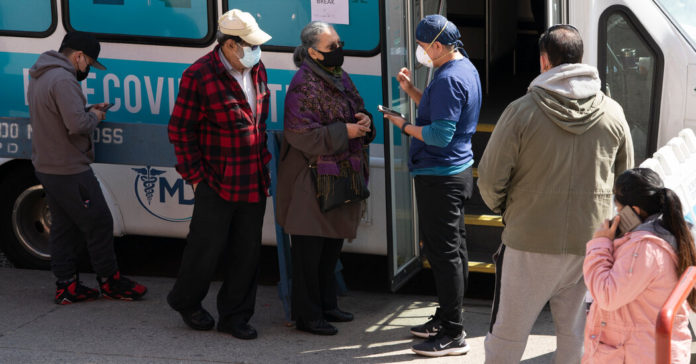
Scientists hope that vaccination will blunt any potential fourth surge.
On Tuesday, President Biden moved up his vaccination timetable by two weeks, calling states to make every American adult eligible by April 19. All states have already met or expect to beat this goal after he initially asked that they do so by May 1.
The B.1.1.7 variant first arrived in the United States last year. In February, a study that analyzed half a million coronavirus tests and hundreds of genomes predicted that this variant could become predominant in the country in a month. At that time, the C.D.C. was struggling to sequence the new variants, which made it difficult to track them.
But those efforts have substantially improved in recent weeks and will continue to grow, in large part because of $1.75 billion in funds for genomic sequencing in the stimulus package that Mr. Biden signed into law last month. By contrast, Britain, which has a more centralized health care system, began a highly promoted sequencing program last year that allowed it to track the spread of the B.1.1.7 variant.
“We knew this was going to happen: This variant is a lot more transmissible, much more infectious than the parent strain, and that obviously has implications,” said Dr. Carlos del Rio, a professor of medicine and an infectious disease expert at Emory University. In addition to spreading more efficiently, he said, the B.1.1.7 strain appears to cause more severe disease, “so that gives you a double whammy.”
Perhaps even more troubling is the emergence of the virulent P.1 variant in North America. First identified in Brazil, it has become the dominant variant in that country, helping to drive its hospitals to the breaking point. In Canada, the P.1 variant emerged as a cluster in Ontario, then shut down the Whistler ski resort in British Columbia. On Wednesday, the National Hockey League’s Vancouver Canucks said at least 21 players and four staff members had been infected with the coronavirus.
“This is a stark reminder of how quickly the virus can spread and its serious impact, even among healthy, young athletes,” the team’s doctor, Jim Bovard, said in a statement.








